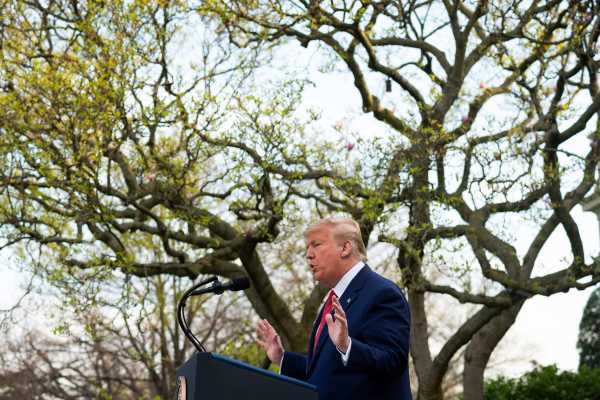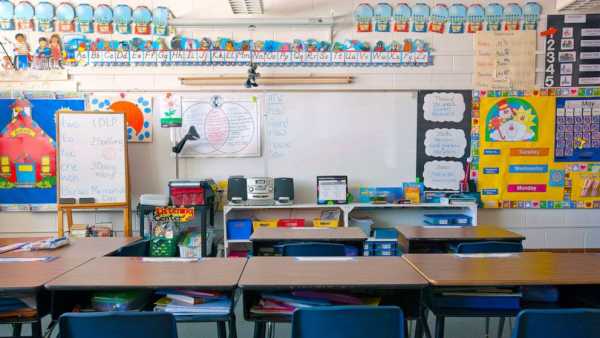
President Donald Trump has spent many of his recent daily coronavirus press conferences bragging about his administration’s response, promoting unproven treatments, attacking the press, and suggesting he planned to stop recommending social distancing.
Sunday, he continued to do the first three things, but took a new and more sober stance on the timeline for ending social distancing — announcing plans to extend his support for the measure by one month.
“Nothing would be worse than declaring victory before the victory is won. That would be the greatest loss of all,” Trump said. “The better you do, the faster this whole nightmare will end. Therefore, we will be extending our guidelines to April 30, to slow the spread.”
Originally, the Trump administration released a 15-day plan asking Americans to take more aggressive steps than had previously been recommended to limit the transmission of Covid-19.
It wasn’t clear what would happen when that 15-day period ended, as it is set to do this week. Last week, the president suggested several times he would stop recommending that Americans stay home, telling Fox News hosts during a federal coronavirus task force town hall Tuesday that he hoped to have social distancing guidelines relaxed by Easter in order to “have packed churches all over our country.”
The president also suggested that he was concerned about social distancing’s effect on the economy. As Vox’s Matt Yglesias has explained, the US Department of Labor announced there were a record number of unemployment insurance claims filed in the week ending March 21 — 3.3 million. The stock market has seen dramatic falls, with the Dow Jones dropping below where it was when Trump took office, erasing three years of gains.
Concerns over these indicators had Trump telling the public, “America will again, and soon, be open for business. … A lot sooner than three or four months that somebody was suggesting. A lot sooner. We cannot let the cure be worse than the problem itself.”
But on Sunday, his top public health experts — Dr. Anthony Fauci and Dr. Deborah Birx — appeared on television, with Fauci saying that models suggest 100,000 to 200,000 Americans could die of Covid-19. Birx said officials believe there “won’t be any city spared from the virus.” She urged states and cities to take mitigation steps similar to those in New York, where despite social distancing, school closures, and other measures, hospitals are at risk of being overwhelmed by the nearly 60,000 confirmed cases as of March 28.
Trump said this explained his new approach, saying he asked both doctors what would happen “if we did nothing, just rode it out.”
“I think we got our most accurate study today or certainly most comprehensive,” the president said. “Think of the number, potentially 2.2 million people [would die] if we did nothing, if we didn’t do the distancing, if we didn’t do all the things we’re doing.”
Trump added, “And so if we can hold that down, as we’re saying to 100,000, it’s a horrible number, maybe even less, but to 100,000, so we have between [100,000] and 200,000, we all together have done a very good job.”
Thus far, the Trump administration hasn’t been lauded for the job it has done. And arguably, had it taken stronger steps earlier, far fewer than 100,000 people would be at risk of death from Covid-19. But on some points, the president appears to now be listening to his public health experts.
Sunday’s press conference was far from perfect, however. He still made unfounded claims, like when he claimed the coronavirus means “people are going to be dying all over the place from drug addiction” and “tremendous suicides.” He pushed a conspiracy theory about disappearing masks, and attacked several reporters for asking him about his past statements by reading him his direct quotes, calling one quote a “lie.”
Trump also continued to set deadlines for a return to normal business experts have argued is unrealistic, saying, “We can expect that by June 1, we will be well on our way to recovery.” Experts have said it may take until September 2021 — but Fauci, Birx, and epidemiologists have said social distancing keeps the rate of infection down, meaning expanding the federal government’s social distancing guidelines is a wise idea, and a good response to the current situation.
Sourse: vox.com






